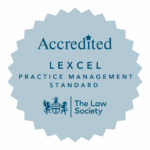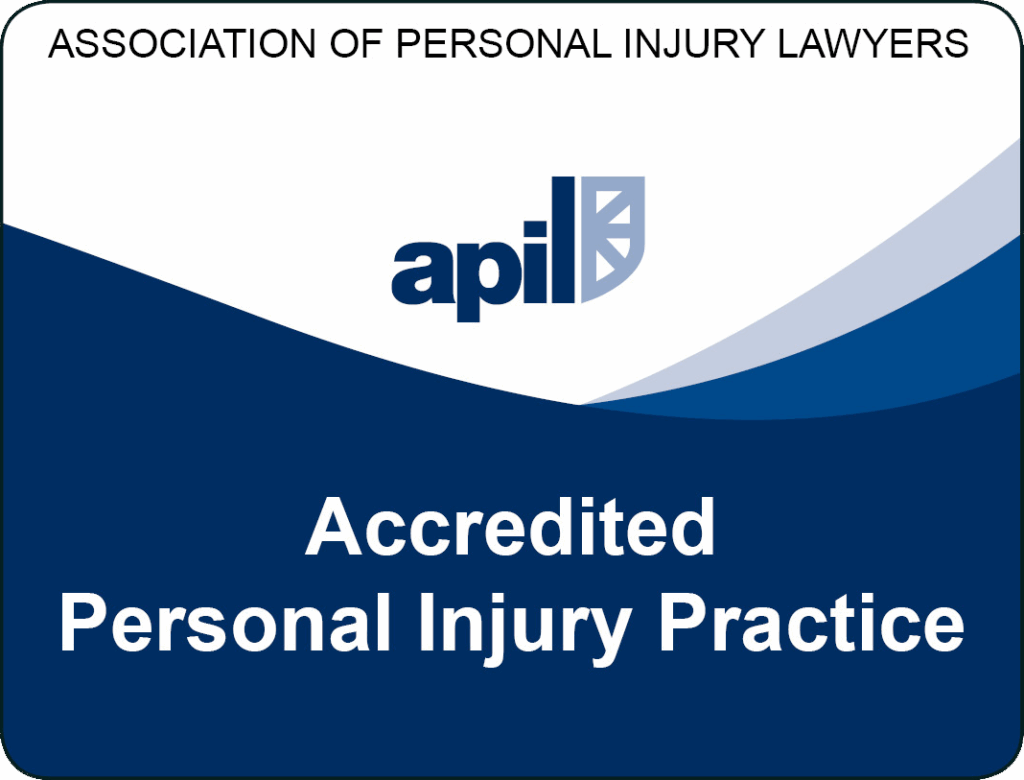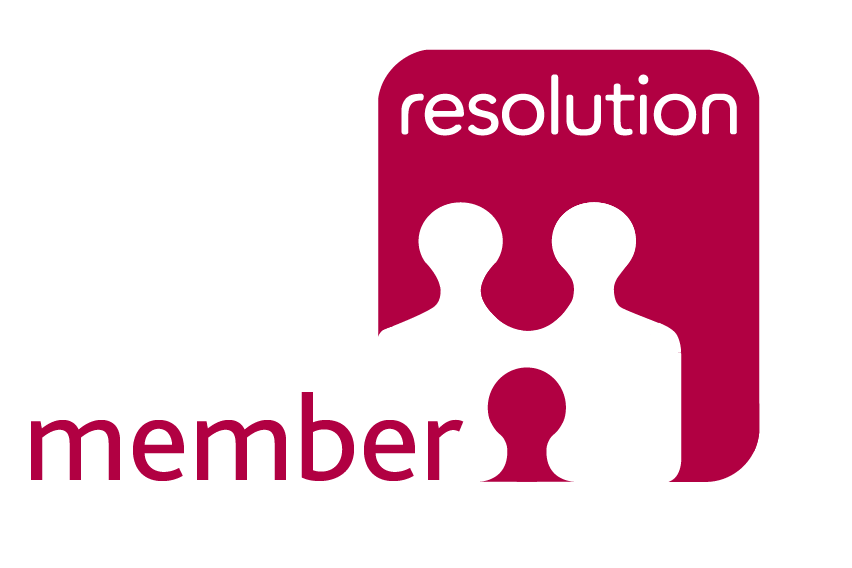This episode features Colin Cook, a personal and brain injury specialist from the Dispute Resolution team, who will share his insights and experiences, providing you with a clear, concise and comprehensive look at the legal process of dealing with a brain injury case.
Full Transcript
Colin Cook: My name is Colin Cook. I’m the managing partner at Hatch Brenner and I’m a solicitor. I have been practicing for 26 years, and for around about 15 of those years, I’ve been dealing with cases which involve mild traumatic brain injury. I’m also a trustee of headway, which is a local Or charity, which provides support for people affected by brain injury and provide support to those people and their families after a person has sustained a brain injury. There is usually a period of confusion that period where there’s a lot of uncertainty in terms of financial issues and by seeking advice from a legal advisor, you can be guided through some of those problems. One of the main things that Families usually want to know is how they are going to continue to maintain financial stability within a family. How you can continue to make mortgage payments, continue to pay the bills. One of the ways in which that can be achieved is by pursuing a compensation claim. If the injury was sustained as a consequence of somebody else’s negligence and that person was in short, that normally involves motor insurers or employers liability insurers, and all of those major insurance companies are set up to deal with these sorts of claims will be used to taking initial requests for interim payments, and look at how rehabilitation can be implemented to assist in the recovery. One of the things that most people want to know is how to start the process.
Well, if you’re looking to seek legal advice, then you know who do you approach? Who do you see? Well, first and foremost, you need to make sure that the person that you approach is experienced and is accredited in dealing with brain injury cases. You can look to organisations like headway who have approved lists of providers in all regions in the country. You can check out the websites of various firms to see what their Experience is in dealing with these sorts of cases, but ultimately you need to ensure that the person that you are instructing or looking to instruct has experience in dealing with these sorts of claims. So one of the things that is important at the outset is ensuring that the injured party’s rights are protected from the outset, and that they have the appropriate access to rehabilitation resources, some of which might not be available through the NHS. And so it’s helpful to have a legal adviser as a go between within an insurer to ensure that the appropriate access to rehabilitation or interim payments to fund rehabilitation is provided. So in terms of the claims process, the first step will be to meet with your solicitor, to discuss the nature of the claims that have been made and the problems that you’re. Encountering so that they can get a proper assessment of what it is that as a client, you need.
Then in terms of processing and pursuing the claim, you will need to come to an agreement in terms of how you fund your claim. And there are various ways in which that can be done. And then once that has been dealt with, it will be a matter for your your solicitor to present a letter of claim to the responsible party and their insurers and essentially engage in a dialogue with the insurance company to deal with, first of all, the question of liability. And secondly, the the, the, the need for rehabilitation and to assess what those rehabilitation needs are. Once contact has been made with the insurer and if they are willing to engage in discussions regarding rehabilitation. And usually an immediate needs assessment will take place. Conducted by a case manager agreed between the insurance company and your lawyers, following which a report can be produced which sets out what your immediate needs are in terms of rehabilitation and how much that’s likely to cost over a year over the initial period of time, which is usually between 6 and 12 months. It’s then a matter for the insurer to decide whether they are willing to fund those recommendations. And there are various different factors that will play into that liability even though it shouldn’t make a difference under the terms of the rehabilitation code will often be in the background and in the minds of the insurance company when they’re considering whether they’re going to fund rehabilitation or provide any interim payments.
And also there is inevitably in cases involving mild traumatic brain injury, insurers often look at those claims with a degree of skepticism. And all of those things combine together to provide a situation of uncertainty. And it’s a really matter for your legal advisers to set out your best case and persuade the insurers that it’s in their interests to fund your rehabilitation if necessary, by interim payments or alternatively, by paying the rehabilitation provider directly. So at the same time that both sides are in discussions regarding potential rehabilitation they’ll also be looking at the question of liability. Sometimes that can be quite straightforward, particularly in cases involving road traffic accidents. But in more complicated situations, liability might be disputed, and there will be a investigation period, an evidence gathering period at the outset an exchange of information so that both sides can understand what each other’s case is. Now, hopefully liability will be admitted, but that’s not always guaranteed. And a case can still continue to run even with a dispute in liability. Throughout it’s just one of the features that is very case specific and it will will impact upon what evidence is obtained and exchanged throughout the course of the case. So in terms of evidence and documentation, as the case progresses, if liability is in dispute, there will be various documents that will be relevant to the question of liability.
That will very much depend upon the type of case that it is, whether it’s an employer’s liability case, whether it’s a road traffic accident or a public liability case. Specifically, in relation to brain injury cases, there will be a process of gathering medical evidence that will normally start with medical records from all organisations, which will include obtaining records of the individual’s full medical history. Even if on the face of it, it doesn’t appear that elements of that medical history are relevant to the specific issue of brain injury. It’s still necessary to collate all of that information. That information is then passed on to appropriate medical experts, which are instructed on the injured party’s behalf. They will range from a variety of disciplines. Which will often involve neurology, might involve. Neuropsychology. Neuropsychiatry. Audio. Vestibular medicine, possibly orthopedic evidence and other experts. Care experts, for example. That process takes a considerable amount of time. Usually you are dealing with some of the most reputable practitioners in the country in. Those fields of medicine, and they have waiting lists. Often there is a period where there’s a lot of what appears to be a lot of inactivity, but it’s usually waiting for experts to become available. And it is premature in many cases to obtain those expert reports as soon as absolutely possible because Ideally, what you would like to see is a period of time when there has been efforts to undergo rehabilitation and treatment to see what level of progress is made in terms of recovery.
But before you have access to medical experts to be able to comment upon your condition and recovery, if you think about it practically, if someone performs an examination once a period of recovery has been embarked upon, they are in a better position to assess what the likely outcome of that recovery is, because they’re not relying entirely upon trying to predict the future outcome, because there will be an element of known outcome which has already taken place. So we’ve spoken already about rehabilitation, which is the primary support service required at the at the outset. Often individuals will have access to NHS services. Depending upon the severity of the injury. Those NHS services may be sufficient. Often they’re not. The NHS provides a wonderful service, but it’s limited in what it can deliver. Whereas private rehabilitation can deliver a wider range of services and often enables those people delivering those services to spend more time doing so. The assistance that’s provided in accessing those services at the outset, essentially is either is liaising with an insurer, persuading them to deliver interim payments or persuading them to adhere to the rehabilitation code, which is a voluntary code of conduct for insurers to engage willingly with the representatives of claimants in setting up an appropriate rehabilitation regime.
Colin Cook: The idea being that it’s in the interests of the insurers to fund that rehabilitation, because ultimately, if the claimant improves and makes a much better recovery, then in the long term the cost to the insurer is going to be less. Sometimes I find that there are clients that have the good fortune to have private healthcare that can often be accessed to obtain rehabilitative services. And the benefit of doing that is that you don’t necessarily need the cooperation of another insurer in order to do that effectively. You can go ahead and just access those services in accordance with the terms of the healthcare policy that you have. One of the recent issues that I’ve dealt with is that sometimes those policies are unwilling to fund access to psychological services. And one of the dominant features in dealing with cases involving mild traumatic brain injury and moderate to severe traumatic brain injury, Drake is that there is often an overlay of psychological conditions with the organic damage that’s been suffered, so that there’s an interplay between neuropsychiatric and neuropsychological clinicians, as well as neurology and possibly audio vestibular as well in order delivering in order to deliver the right level of clinical care to put that person back on the road to recovery. So how’s compensation calculated in brain injury cases? Well every case is obviously different. If you start with the core element of the award, which is the injury itself.
Well, in this country, injuries are not terribly valuable. They’re not the key component of a large personal injury award. If you look at countries like the United States, the awards over there are much higher than they are in this country. So if you looked at the injuries being the core, what you then look at is, well, what what effect has that injury had upon the person? So, you know, had their job been affected and have they lost their job? In those situations you would look at a reduction in earnings a lost earnings claim, a complete lost earnings claim in the event that a job has been lost completely. Even if an individual continues to work because they may have the good fortune to have a very understanding employer. That person may face a risk of being placed in the open labor market at some point at a later date, and face a disadvantage when competing for roles with a candidate that has been completely unaffected, that has none of the the disabilities or deficiencies that that arise from having sustained a brain injury. In those circumstances, calculations can be made and claims presented to ensure that there is sufficient compensation in those circumstances built into an award. Other heads of claim, usually in the larger cases, will involve claims for care and support, ongoing rehabilitation, those between that and lost earnings. They tend to be the larger components of the bigger type.
Awards. When we’re dealing with awards that are six figures plus, those two heads of claim tend to make up the lion’s share of the claim. Then there are lots of other items that you can take into account. Loss of congenial employment out of pocket expenses, ongoing medical expenses. Usually most things that you can provide a receipt for claimable and recoverable as long as they’re properly evidenced and supported by the type of injury that’s been sustained in the medical evidence that’s been obtained in support of it. So in essence, if you think that there is something that should be claimed for bring it to your lawyer’s attention because they will be able to advise you as to whether or not it’s possible to bring a claim for that particular item. So one of the other heads of claim that we frequently come across is if someone’s income has been affected and quite often their pension will also be affected. So we can look at what the impact is on the long term financial impact on that pension and whether or not that would also formulate part of the claim. So how does financial compensation impact the recovery process? Well, it can aid the recovery process insofar as it can deliver additional rehabilitation and medical care that you might not necessarily obtain through the NHS. One of the negative sides that we sometimes see in terms of pursuing a claim for compensation is that the process can be stressful, it can take a long time and there will need to be some engagement and involvement from a client in the claim in terms of providing witness statements, documentation and supporting the claim and attending upon medical appointments sometimes for experts that are instructed by their own lawyers and sometimes by medical experts that are instructed by insurance companies, lawyers.
And so, you know, that that that that process can be long and can be stressful. That in itself may have an impact on the on the recovery in the short term. But once the claim has been resolved, it’s often said by the doctors that are commenting in these sorts of cases that there is an expectation that there will be a lift in an improvement in the future from that point onwards. So in terms of longer term considerations, these are the sorts of cases that you’re looking at protecting your long term financial future. And, you know, making sure that mortgages are covered. Bills are continuing to be paid, if necessary, that there is a provision for carers in the longer term. And it’s a question of trying to map out on a case by case basis what those needs are and how to best plan and provide for them within the content, within the context of making the right claims themselves. But also once those claims have been made, you know, do are there ways and means in which you might be able to protect the entitlement to means tested benefits, for example? And, you know, we work with clients, with our private client team in advising on the ability to set up personal injury trusts, which are often a a vehicle in which you can make plans and provisions for the future and maintain entitlement to income from other sources, such as benefits.
So in terms of the advice for families and caregivers, I often find that it’s useful to obtain evidence from family members and from people who are delivering care in support of individuals bringing claims. It’s there are also resources that can be accessed outside of the rehabilitation, the funded rehabilitation process. So, for example, you know, there are good organisations that are able to provide families with support, such as Headway Charitable Organisation, which delivers assistance to both the individuals that have been affected by acquired brain injury and support for their families. And it’s definitely worth in the event that there are struggles those. So if you’re not able to obtain, for whatever reason, immediate access to rehabilitation support and the services provided through the NHS are limited, you may be discharged from NHS services. Then there are organisations out there that can help organisations like headway. Depending upon where you’re located, there are headways in most regions. Certainly in Norfolk and Waveney, Suffolk, Cambridge, they can help families come to terms with the immediate and long term impacts of brain injury.
And they’re there to provide support. In my experience, families can often find it difficult providing support for their loved ones recovery and their journey. You are often dealing with a change, a radical change in circumstances. Often a change in personality. And there is a almost a coming to terms with a period of grief in losing the old personality and a coming to terms with the new personality, the new you. And that can be difficult both for the individual and the families. And again, there are support networks out there to, to, to to help cope with that. And, you know, had had ways an organization which, you know, is fully aware of those problems and deals with them on a day in, day out. How is the the brain injury law evolving at the moment? Well, you know, there have been a number of cases that have progressed through, the High Court in the last few years. They those cases are are spearheading the the court’s understanding of mild traumatic brain injury. What it involves, what the Gateway Gateway criteria are for establishing a claim for mild traumatic brain injury. The the authorities in this area are moving positively in the right direction. The court is gaining a better understanding of brain injury cases. Cases? The type of issues that those affected suffer. And also there is a, an understanding that you know, that there are going to be evidential issues in these cases.
By very by the very nature of the injuries that have been sustained. They are not easy cases to to collate evidentially because there are problems with memory, problems with concentration often problems with consistency. And, and all of these problems. Are intermixed often with psychological problems, which impacts upon a client’s ability to perform perhaps in a, in a way that they might want to under medical examination. And these are all challenges that your legal team need to be fully aware of and experienced in dealing with in order to enable you to present your case in in the best light possible. One of the areas in which the court is usefully concentrating and developing its understanding in the recent cases that it’s heard, is addressing issues like functional neurological disorder, that mild traumatic brain injury can be a gateway to that condition, that that condition is real, that it exists, and that it has a significant impact upon individuals that are have the misfortune to suffer from it. In addition, recognizing that there are things such as somatoform disorders that, again, are very real and that the consequences of them are very real. Often those conditions are treatable, but nevertheless have a significant impact upon what an individual may experience and feel and and how it impacts upon their daily lives.
In the last few years, when the courts have been considering these cases, they’ve been very interested in exploring what happens in the first 24 to 48 hours post accident in order to establish whether, medically, the case satisfies the gateway criteria to major brain injury or a more moderate severe traumatic brain injury, and therefore, it is absolutely critical that anyone that is dealing with these sorts of cases takes good, clear instructions from their client at the earliest opportunity, dealing with the events that took place over that period of time, the memories that were present over that period of time, the gaps in memories that were that were absent over the same period of time in order to provide the best opportunity for the medical experts on both sides to be able to determine whether the. And whether that information and those memories can assist as a a diagnostic, as part of a diagnostic tool to determine whether there has been any kind of organic damage or indeed any kind of psychological damage, because we’re often dealing with cases in which at the moment, the scanning technology that is more widely available is insufficient to detect the sort of damage that we’re talking about. Standard CT scanning, standard MRI scanning doesn’t cut it. There are other types of scans which are available used mainly as research tools rather than in the clinical. And clinical fields. Sometimes they can be accessed through a legal claim, sometimes not.
But broadly speaking, the lion’s share of these cases don’t involve those sorts of scans. And as I say, the standard scans don’t pick up the type of injuries that we’re dealing with here. The initial years following this kind of traumatic event can be difficult. You often find that you are navigating an under-resourced NHS that is ill equipped to deal with the full effects what you may be going through. In addition to that, there may be turmoil in the family because of financial reasons, because of emotional reasons, because of the impact of the injury. Changes in personality. Changes in circumstances. Dances. On top of that, there’s a legal claim. Potentially stressful, long. It can seem like a drawn out process. But, you know, there are usually very good reasons behind that. All I would say is that more often than not, there is life at the end of the tunnel. There is light at the end of the tunnel. Just often takes time to get there, usually at the end of a legal claim. A number of these issues have started to settle down, and the individuals that I am often dealing with are coming to terms with the change in their circumstances and finding themselves in a position where they can move on positively, hopefully with the benefit of a more secure financial future, and hopefully with the benefit of the additional rehabilitation and treatment that they might not otherwise have had access to.





